Dilbar, a custom-built 512-foot yacht owned by Russian billionaire Alisher Usmanov and purchased for $600 million in 2016. It was once the world’s largest yacht in terms of tonnage. Lürssen, a German shipbuilder, designed and built it for him in 52 months.
It is one of the most sophisticated and challenging boats ever manufactured, in terms of both size and technology. It’s the world’s largest motor yacht by gross tonnage, weighing 15,917 tonnes, and accommodating 24 passengers in 12 suites with a crew of 96. It features the world’s largest pool, two helipads, a sauna, a beauty salon, and a gym.
Dilbar is reported to have the most advanced security systems of any superyacht in the world. However, everything you’ve read about it having an anti-air missile defense system is incorrect.
Since late October, the boat was in the shipyards of shipbuilder Blohm+Voss. The Dilbar has been docked in Hamburg, Germany, where it is undergoing a renovation. Officials say the Dilbar’s repairs have been temporarily suspended and the ship is not currently seaworthy.
Anton Geraschenko, Ukraine’s adviser to the minister of internal affairs, responded to the Telegram report group by proposing that the yacht should be returned to Ukraine and outfitted into a missile cruiser. The White House, on the other hand, has announced that a multilateral Transatlantic task force will be established to identify, track down, and confiscate the assets of sanctioned Russian corporations and billionaires. Their boats, houses, and any other ill-gotten wealth they can locate will be frozen under the law.
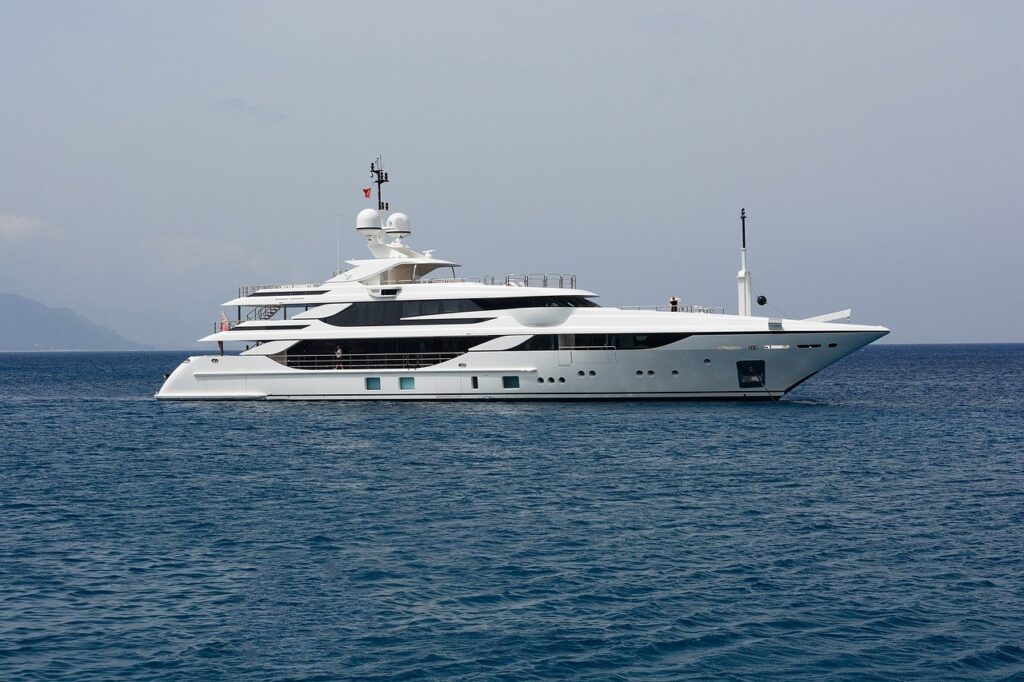
What are Sanctions?
The Western response to various geopolitical challenges, including North Korea’s nuclear program and Russia’s engagement in Ukraine, has been marked by sanctions.
Economic sanctions are defined as the suspension of normal trade and financial relations for the goals of foreign and security policy. Individuals or entities are subject to these restrictions, which ban them from doing business with the country enforcing the penalties. Sanctions can be broad, prohibiting all economic engagement with a country, or particular, prohibiting dealings with specific individuals, businesses, or groups.
Targeted sanctions have become more popular, with the goal of minimizing the suffering of innocent civilians. Travel restrictions, asset freezes, weapons blockades, capital restrictions, foreign assistance reductions, and restrictions on trade are all examples of sanctions.
Types of Sanctions
In general, there are two types of sanctions: those imposed by the government and those imposed by private entities.
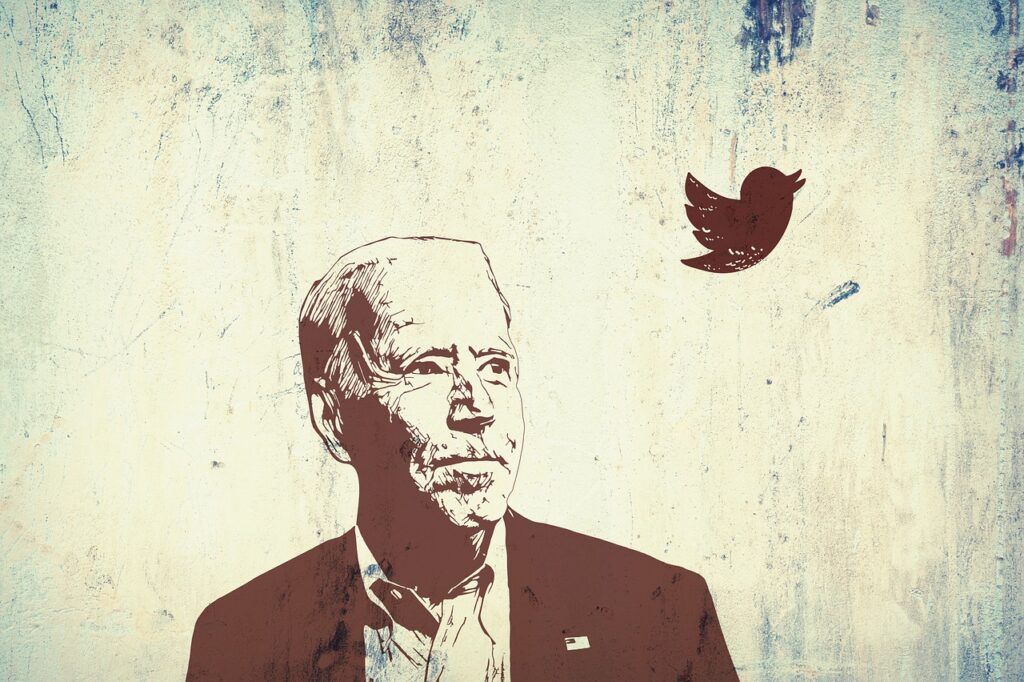
Governments Sanctions
1. Politicians, Officials, and Oligarchs:
Sanctions have been imposed on officials linked to Russian President Vladimir Putin in two different ways. Many of these person’s assets in the EU, US, UK, Switzerland, Japan, and Canada have been frozen. A travel ban has been issued. Diplomats, Russian officials, and businesses will no longer be eligible for visa waivers, which give them preferential access to the EU.
Also Read: Why does America appear to be a developing country?
2. Economic Sanctions
“Direct or indirect trade in investment services for securities and money-market instruments issued after April 12, 2022” has been forbidden by the EU. Furthermore, the United States, the United Kingdom, Canada, and the European Union want to “impose restrictive measures to prevent the Russian Central Bank from using its foreign reserves in ways that undercut the impact of its sanctions.” Transactions with the Russian central bank have also been restricted in Japan.
3. SWIFT
To “guarantee that these banks are separated from the international financial system and hurt their capacity to function globally,” a “select” number of Russian banks will be excluded from the Swift international payments system. Bank Otkritie, Novikombank, Promsvyazbank, Rossiya Bank, Sovcombank, Vnesheconombank (VEB), and VTB Bank are among the seven banks named by the EU.
4. Many Russian banks’ assets have also been frozen by the west.
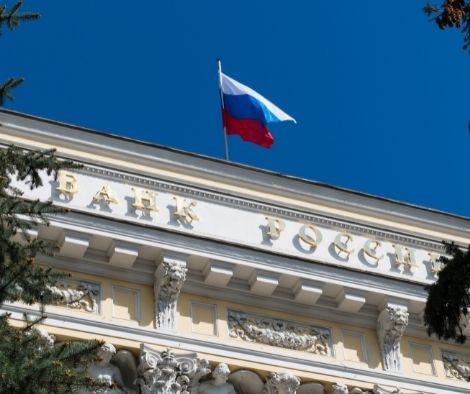
Sanctions on Russian Companies
Exporting technology to Russian weapons manufacturer JSC Kalashnikov, as well as pharmaceutical firms, military communications units, and shipyards have been banned by the West. Insurance and reinsurance, as well as maintenance services, are also prohibited. Many state-owned firms involved in arms manufacture, railways, seaport development, energy, and defense are prohibited from doing business with EU corporations. Export restrictions on dual-use items and technology, such as semiconductors, have been tightened even more.
Russian deposits exceeding €100,000 in EU banks, Russian accounts maintained by EU central securities depositories, and the sale of euro-denominated securities to Russian clients are all prohibited. Stocks of Russian state-owned companies are not allowed to be traded on EU exchanges.
By Private Entities:
Many firms in the automobile, oil, gas, and technology sectors have ceased operations in Russia or sold their holdings.
- BP,so called the world’s largest foreign investor in Russia, has announced that it will sell its almost 20% share in Rosneft, the Russian state-owned oil and gas business. According to Reuters, the shift may cost anywhere between $14 billion and $25 billion.
- Apple has announced that it would no longer sell the iPhone and other popular gadgets in Russia. Apple Pay was also suspended in Russia, while Sputnik and RT, two government-backed news organisations, were deleted from the App Store outside of Russia. Apple Maps in Ukraine has also been disabled for traffic and live situations.
- Google has stopped paying money to Russia’s state-owned media outlet RT and other channels for adverts on its websites, apps, and YouTube videos. Google Pay has been suspended for users of sanctioned Russian banks, meaning they will be unable to utilise the mobile payment system.
- Meta, the parent company of Facebook, has blocked Russian state media from placing advertisements or making money on the network everywhere in the world.
How can a country circumvent the sanctions?
The Russia-Ukraine war serves as a warning to any country that seeks to defy Western interests. Currently, the economies of all countries are interconnected, but in the future, the economies of all countries will be increasingly fragmented. Whatever the impact of the sanctions on Russia, there will certainly be a significant impact on the dollar and the US economy.
Every country will strive to build its own tools in order to be self-sufficient from so-called international organizations. Because the United Nations has failed to bring the globe together. Similarly, the UN Security Council has failed to act pro-actively in difficult situations. Consequently, so-called international financial instruments would be affected.
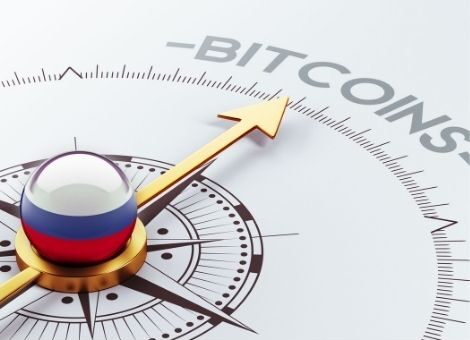
SWIFT
SWIFT (Society for Worldwide Interbank Financial Telecommunication) is a global messaging system that relays orders from one bank to another. It is not a financial organization. It tackles the difficulty of communicating about cross-border payments. As a result, SWIFT is not a payment system and cannot move money. It provides a safe environment for exchanging payment instructions between banks.
To replace SWIFT, Russia’s Central Bank developed its own messaging system, the System for Transfer of Financial Messages (SPFS), in 2014. SPFS traffic is expected to reach 13 million messages by 2020, with more than 400 financial institutions participating. Although it is less efficient in comparison to SWIFT, it can satisfy Russia’s needs. Similarly, China has established the Cross-Border Interbank Payment System (CIPS), which can be used by Russian banks as an alternative.
Payment System
Visa and MasterCard both halted the services of some of the Russian banks in 2014 and barred them from accessing their payment systems. The Russian government passed a new law, launching the National Payment Card System, subsequently known as Mir. The card system, which is wholly controlled by Russia’s central bank, serves as a clearing house for processing card transactions within the country.
To decrease the dependency on Visa and Mastercard, India has introduced Rupay cards. The National Payments Corporation of India created and implemented RuPay, Indian transnational financial services, and payment service system. It was established to carry out the Reserve Bank of India’s objective of creating a domestic, open, and multilateral payments system.
Ban on Foreign Currency
If all international banks close foreign currency accounts for all Russian banks, Russia will be the hardest hit.
Russia is launching the digital ruble, China is introducing the digital renminbi, and India is introducing the digital rupee to avoid this problem in the future. Because the dollar is used in 40% of worldwide transactions, this will lessen reliance on this currency. The digital currency will be borderless and untraceable by foreign banks.
Every government will undoubtedly plan its strategy and attempt to avoid the consequences of any sanctions. Sanctions may turn out to be a futile attempt to destabilize an economy in the future.
Sources
- Ukraine: What sanctions are being imposed on Russia? – BBC
- These are the corporations that have pulled out of Russia since its invasion of Ukraine – CBS
- How Disastrous Would Disconnection From SWIFT Be for Russia? – Carneige
- France seizes yacht linked to Russian oligarch at Mediterranean port – The Guardian



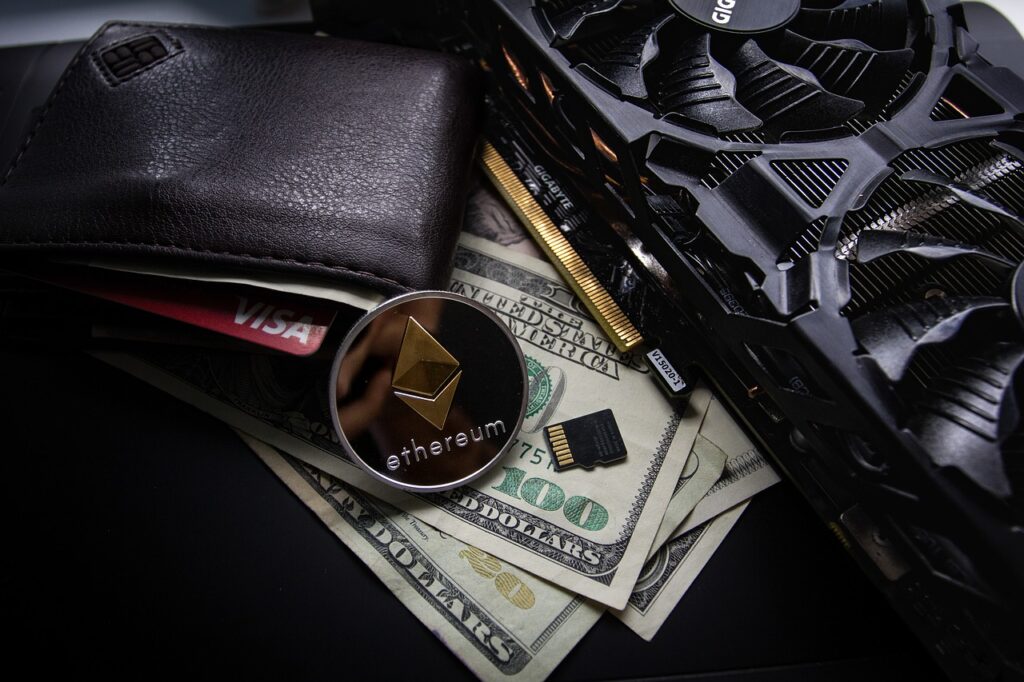


Pingback: Why is Norway, such a beautiful country, so wealthy? | Niripto